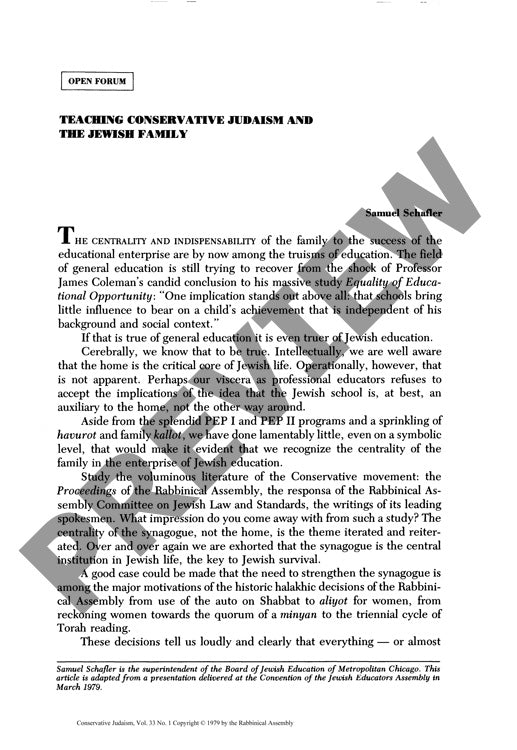Teaching Conservative Judaism and the Je
Couldn't load pickup availability
Conservative Judaism's institutional priorities have undermined rather than strengthened Jewish family life, with synagogue-centered policies consistently overshadowing domestic religious expression. Drawing from James Coleman's educational research on family centrality in learning outcomes, Schafler reveals how the movement's "immanent theology" manifests in Rabbinical Assembly proceedings, responsa, and halakhic decisions—from Shabbat automobile use to women's ordination debates. This institutional focus has shaped a generation that measures Jewish commitment through organizational involvement rather than family formation and child-rearing. Analysis of movement policies demonstrates the need for fundamental reorientation toward family-centered programming, including enhanced home-school partnerships, preferential policies for married educators, and reduced tuition for larger families. Moving beyond aggressive denominationalism, the research advocates for "unhyphenated Judaism" and redefines Conservative Judaism as an intellectual approach that combines reverent love of tradition with scholarly discernment between time-bound customs and eternal truths, emphasizing the continued relevance of classical Jewish teachings in contemporary contexts.

More Information
-
Physical Description
-
Publication Information
Published 1979
ISBN
-
Publication Credits
Samuel Schafler

